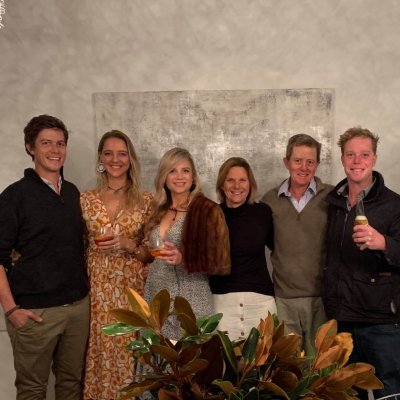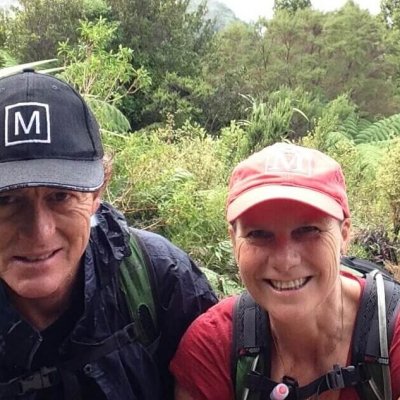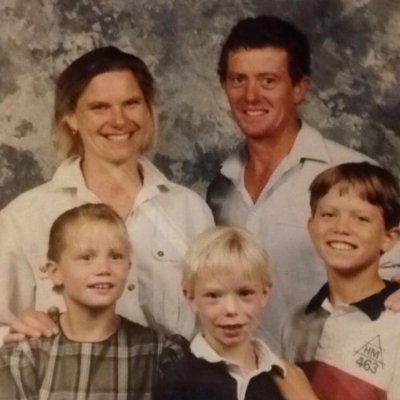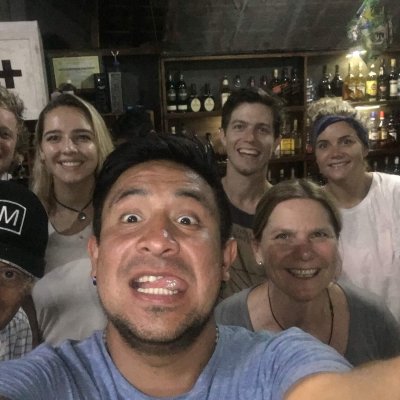A midwife, mother, cattle-stud bookkeeper, co-owner and manager of a seed stock business… like most rural women, Sara Moyle wears many hats. Though she grew up in Adelaide, her parents had rural life in their blood and her teenage weekends were spent on their sheep and cropping farm near Yacka, in South Australia’s Mid-North. She and husband Nick have run sheep and cattle properties in South Australia, New South Wales and now near Hamilton in Victoria, from humble beginnings with around 30 head, to now over 2,000 cattle. The pair are also the proud owners of Pathfinder Angus, selling around 500 Angus bulls per year around Australia and semen worldwide. Strong, flexible and family-centred, Sara is happiest on family holidays with her three adult children, sitting around the bonfire at home or bringing new life into the world through her work as a midwife.
When asked what concerned her about the health, safety and wellbeing of those in rural industries and communities, Sara talked about a serious accident her son Harry had at a young age. “Like many others, our children all grew up riding motorbikes on the farm. We strictly reinforced the need to wear helmets and to remain vigilant of what was going on around them.” Despite this, he sustained a major head injury upon colliding with a cow at dusk. Fortunately, he received timely medical assistance and the sense of community Sara loves about being a rural woman came into sharp focus. “The community in Naracoorte was amazing.” Sara also said being 110% attentive when working with cattle is critical, as well as being aware of your nearest escape zone. She and Nick are always looking for ways to improve safety, citing improvements Nick has made to the design of their sheep and cattle yards. “The animals can move freely, they don’t get as stressed and it reduces the pressure on people and the chance of a person getting caught in the line of fire,” she said. Both Sara and Nick see health and safety as a part of every day and every activity, holding weekly OHS meetings so everyone’s able to contribute. By providing workers with an opportunity to have their say, she says “It’s an opportunity to add value and build trust.”
How would you describe yourself in three words?
I grew up in Adelaide with parents of rural roots. Both parents initially grew up in the country and always wanted to eventually return. Mum grew up in Appila and Dad at Melrose. Although I spent a lot of my youth in Adelaide, I grew up with their country values.
I spent my weekends in my teen years on my parent’s sheep and cropping farm near Yacka. At that stage I was at Seymour College, and I had somewhat regretfully made the decision not to board – but I wanted to be able go home on the farm on the weekends, so I lived in my Mum and Dad’s flat in Adelaide. Mum and my brother Michael worked on the farm while Dad worked in a senior management position at Century Products. My favourite memories on the farm included having bonfires in the paddock, rearing pet lambs, dogs, cats and a horse called Blaze.
I met my husband Nick at The Droopers B&S, which was held in Melrose. Nick was a farmer from Willalooka, and it wasn’t long before we were married – for nearly 35 years now. We’ve since had three children and have managed and eventually owned sheep and cattle properties all throughout South Australia, New South Wales and now Victoria. These included Buckland Park at Two Wells, a property near Burra, Cooma, Naracoorte and Hamilton.
As a young woman I’d always wanted to be a vet, however I never thought I’d be able to make the grades and so decided to pursue a career in nursing. I went to nursing school from 1981 – 1985 in Adelaide at the Children’s Hospital and loved children’s nursing, however was intent on becoming a midwife. Upon getting pregnant with my first child, Tom, I postponed further study until a little later in life. At one point, I could see that my career starting to veer into aged care, which catalysed my decision to finally study midwifery. Nursing has been wonderful and I’ve never had to look for work, which has been particularly helpful given how frequently we’ve chosen to move.
On top of nursing and raising our three children, I’ve also managed the cattle book work and finances for our cattle stud. Initially this was all hand-written on paper, requiring countless hours mulling over a desk. These days almost everything is managed via computer… and in hindsight, I just kept pressing every key until I worked out what I was doing. It’s been incredibly satisfying to watch our stud slowly but surely grow from 30 – 50 cows, to now 2000 – 3000 cows. Somewhere within all of this, I’ve also tried to take on the role of OHS within our business. I am also lucky to have Alex Thomas as my niece!
What achievements are you most proud of?
A strong marriage. I don’t think there’s any secret to it… but being good friends and being understanding and accepting of one another has definitely served us well.
I’m also incredibly proud of our three children. Tom, who works in aquaculture, is kind and thoughtful. Harry, a farmer, is adventurous, social and loves fishing and shooting, and Elle, a vet and a farmer, is strong and enterprising, and is doing a fabulous job at promoting the agriculture industry. All of our children are very determined.
I’m also very proud of our business, Pathfinder Angus, a seed stock business which sells around 500 Angus bulls per year across almost every state in Australia, with semen sold worldwide.
My nursing career and attaining midwifery was also an achievement. We’d spent so much time in so many different places, my career took a back seat for quite a long time.
What makes you truly happy?
Family holidays. Fortunately all of our children still love holidaying with us – even now. We’ve been on some remarkable camping trips, beach holidays at Black Point and even as afar aboard as Russia, the UK, Africa, Thailand and Peru. We’ve been incredibly lucky to have visited some wonderful places and made some beautiful memories… but even so, just having everyone home around a bonfire makes me equally as happy.
As a midwife, I’ve also shared some beautiful experiences with mothers. There’s nothing quite like being a part of the process of bringing a life into the world, let alone being lucky enough to be a midwife for those who go on to have more children. It’s very special when you get to be there for their third and fourth babies.
What do you love the most about being a rural woman?
I love the sense of community that comes with living in the country. You get to know people a bit better than you would in the city. A trip to the supermarket often means you’ll run into mothers whom you’ve helped deliver their babies. Only the other day I was in Harvey Norman and a mother showed me pictures of how her children have grown. That sense of community became especially profound after my son had a dreadful accident on the farm – the community in Naracoorte were amazing.
I also love the freedom that living rurally allows. Even during the COVID-19 lockdown, we’ve still been able to enjoy the paddocks and we’ve got the space to breath. Isolation hasn’t been nearly as life-altering in the country as it would have been in the city.
Living rural also allows a heightened sense of autonomy. You don’t feel like you’re as much a part of a machine as perhaps you would in the city.
Tell us about a time when you felt worried about your own or someone else’s health, safety or wellbeing.
Like many others, our children all grew up riding motorbikes on the farm. We strictly reinforced the need to wear helmets and to remain vigilant of what was going on around them. Unfortunately, our youngest – Harry – had a life-changing accident as a young boy. He’d been wearing his full-face helmet and to the best of our knowledge was doing everything right, however sustained major head injuries upon hitting a cow at dusk. A nightmare for any parent, let alone a nurse.
We rang the hospital and they were waiting at the back door, another benefit of living in a rural community and having close relationships with medical staff. They called in as many resources as they possibly could, with the doctor from Mount Gambier even coming up to help… now a close friend of mine even to this day. At the time, Naracoorte had been shrouded in thick fog and one point there was a possibility that the RFDS plane may not be able to land. If the stars hadn’t been aligned and the RFDS hadn’t made the decision to land, Harry may not have survived. We are forever grateful for everything the Naracoorte hospital and surrounding community did for us to ensure Harry had the best possible care.
What practical things did - or could - you or someone else do to prevent yourself or someone else from getting hurt?
Conduct routine, regular maintenance checks on ATVs, drive at a safe speed, wear a helmet and a seatbelt… particularly if you’re riding in a buggy. Apparently the highest number of accidents on farms in America occur due to the unsafe use of buggies.
Make sure you know where your family are at all times. Apps like Find My Friends can be really useful.
Make sure you have a flu injection each and every year and encourage your colleagues to do the same.
Wear sunscreen and protective clothing to reduce your chance of contracting skin cancer.
When working with cattle, make sure you’re 110% attentive and notice the behaviour of each animal. Be aware of your nearest escape zone before you get in the yards.
Safety is a part of every day and every activity. We’re constantly looking to improve the way we do things and this almost always results in an added safety benefit. For example, my husband Nick has made significant improvements to cattle and sheep yard designs to make them safer, as well as better for our stock. The animals move freely, they don’t get as stressed, it reduces the pressure on people and the chance of a person getting caught in the line of fire. Safety makes things easier – not harder – it’s nicer for the stock and it’s nicer for the staff, therefore making the job a lot faster.
"We’re constantly looking to improve the way we do things and this almost always results in an added safety benefit. Safety makes things easier – not harder – it’s nicer for the stock and it’s nicer for the staff, therefore making the job a lot faster."
Sara Moyle, Penshurst, Victoria AU Tweet this
Is there a time, place or scenario when your partner or those you work or spend time with are more willing to make changes to the way the work is done, or are more open to making safer, healthier choices?
We have a team meeting every Monday morning to discuss what’s happening for the week and to talk about any issues arising. It’s a great forum for everyone to have input and includes making sure OHS is discussed and recorded. If need be, I will send a text message to remind staff of any extra precautions.
Where it can get challenging is in trying to get people to consider changing unhealthy habits, like smoking. While we have a no smoking policy in place and have a strict rule against smoking near the shed, at the end of the day when it comes to health, you can’t make people do things – but you can try and influence them. In the very least, asking someone a simple question like “How are you going?” (in relation to the habit) holds them accountable for at least considering making a change.
If you could give any advice to another rural woman about health, safety and/or wellbeing in rural industries and communities, about influencing change in business - or just in general - what would it be?
When it comes to health and safety, trust your instincts. You know what you need to do.
If you’re new to a family farm, don’t be afraid to take on a role or an area of the business that hasn’t be fully developed… perhaps like OHS. It’s an opportunity to add value and to build trust.





